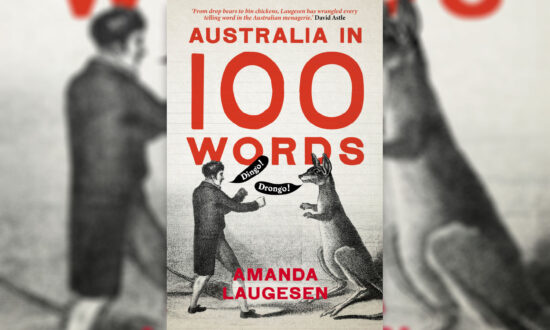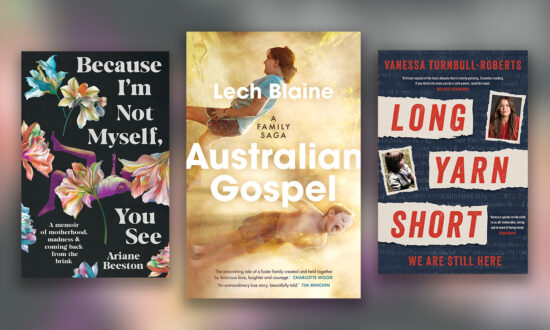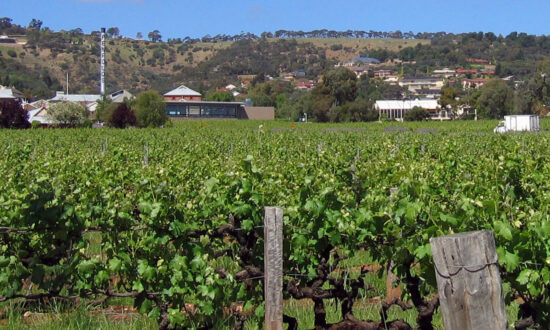January is many things. In Adelaide, it’s blue-sky hot. It’s a month of random fireworks (at least where I live, on the city’s fringes, it seems to be). It’s beaches and swimming pools; pubs and parks.
And, no matter where you live, it’s a clean-slate month. A month of starting anew, and planning ahead.
As a book addict, I’ve been looking at all the books planned for publication this year, thinking about what I’ll read and recommend. This is by no means an exhaustive list!
Fiction
 In February, I’m looking forward to Little Plum (Text Publishing), the second novel from Laura McPhee Browne, whose Cherry Beach was one of my favourites in 2020. For this novel she draws on her experience counselling women who struggle while pregnant: when almost-30-year-old Coral unexpectedly falls pregnant to a work colleague, her sense of self starts slowly to fracture.
In February, I’m looking forward to Little Plum (Text Publishing), the second novel from Laura McPhee Browne, whose Cherry Beach was one of my favourites in 2020. For this novel she draws on her experience counselling women who struggle while pregnant: when almost-30-year-old Coral unexpectedly falls pregnant to a work colleague, her sense of self starts slowly to fracture.
Jacinta Halloran, the Melbourne GP whose excellent first novel, Dissection (2008) – about the unravelling of a GP – was launched by Helen Garner, similarly seems to draw on her job for her fiction. In Resistance (Text Publishing), she follows a family therapist as she slowly uncovers the story of one family’s mysterious escape to the outback.
I’m excited to read Booker winner Eleanor Catton’s gripping psychological thriller Birnam Wood (Allen & Unwin, March): described as Shakespearean in its wit, drama and immersion in character.
Victory City, by Salman Rushdie (Penguin Random House, February), is the epic tale of a woman who breathes a fantastical empire into existence, only to be consumed by it over the centuries. And Miles Franklin winner Alexis Wright’s Praiseworthy (Giramondo, April), set in a small town in the north of Australia, is dominated by a colossal haze cloud: at once an ecological catastrophe and a gathering of the ancestors.
 A very different much-awaited novel is The Guest (Penguin Random House, May), Emma Cline’s much-awaited follow-up to her Manson-adjacent novel The Girls. It begins with a young woman of 23 living with an older man in his late 50s in his palatial LA house not far from the beach. There’s also new fiction coming from JM Coetzee, The Pole and Other Stories (Text Publishing, July).
A very different much-awaited novel is The Guest (Penguin Random House, May), Emma Cline’s much-awaited follow-up to her Manson-adjacent novel The Girls. It begins with a young woman of 23 living with an older man in his late 50s in his palatial LA house not far from the beach. There’s also new fiction coming from JM Coetzee, The Pole and Other Stories (Text Publishing, July).
Gretchen Shirm’s The Crying Room (Transit Lounge, July ) is a family drama following three generations of women: Bernie, her daughter Susie, and her niece Monica, the fictional author of The Crying Room. Also in the second half of the year, is Ordinary Gods and Monsters by Miles Franklin-shortlisted author Chris Womersley (Picador), about a teenage boy who sets out, with his female best friend, to find her dad’s killer in a hit-and-run accident… and they end up clashing with a bikie gang determined to protect its hold over the local drug trade.
 Romantic Comedy (Penguin Random House, April) is the latest from Curtis Sittenfeld, author of the Hillary Clinton novel Rodham (not my personal favourite) and the Laura Bush novel American Wife (my favourite). The new one is a witty and confronting story of unconventional love, set behind the scenes at a legendary TV comedy sketch show.
Romantic Comedy (Penguin Random House, April) is the latest from Curtis Sittenfeld, author of the Hillary Clinton novel Rodham (not my personal favourite) and the Laura Bush novel American Wife (my favourite). The new one is a witty and confronting story of unconventional love, set behind the scenes at a legendary TV comedy sketch show.
If you like romance, read Jodi McAlister – who is also a romance academic and just a really terrific, warm and funny writer. Her second rom-com based on a TV show very like The Bachelor, Can I Steal You For a Second? (Simon & Schuster), is coming in April, following last year’s Here for the Right Reasons. Her books both subvert and pay loving tribute to all the tropes of TV dating shows: for example, in the second book, two contestants fall in love with each other instead of the bachelor they’re supposedly competing for. And Toni Jordan’s comedies are always spiked with savvy social observation – and a pleasure to read. Prettier if She Smiled More (Hachette, April) sees a perfectionist’s carefully constructed life crumble over one eventful week.
 There’s a spate of promising historical fiction, including by a trio of very fine Adelaide authors. The Idealist (Giramondo, June), by Nicholas Jose, is set in Australia, East Timor and Washington DC in the lead-up to the independence referendum in East Timor in 1999. The Art of Breaking Ice (Affirm, July), by Rachael Mead, reimagines the life of artist Nel Law, who hid onboard a 1960 Antarctic expedition and became the first Australian woman to set foot there. And Pip Williams’ follow-up to her worldwide bestseller The Dictionary of Lost Words, The Bookbinder of Jericho (Affirm, March), explores another little-known slice of history through women’s eyes: Peggy and Maude are twin sisters who work in the bindery at Oxford University Press in Jericho.
There’s a spate of promising historical fiction, including by a trio of very fine Adelaide authors. The Idealist (Giramondo, June), by Nicholas Jose, is set in Australia, East Timor and Washington DC in the lead-up to the independence referendum in East Timor in 1999. The Art of Breaking Ice (Affirm, July), by Rachael Mead, reimagines the life of artist Nel Law, who hid onboard a 1960 Antarctic expedition and became the first Australian woman to set foot there. And Pip Williams’ follow-up to her worldwide bestseller The Dictionary of Lost Words, The Bookbinder of Jericho (Affirm, March), explores another little-known slice of history through women’s eyes: Peggy and Maude are twin sisters who work in the bindery at Oxford University Press in Jericho.
 In Wifedom (Penguin Random House, June), Anna Funder uses newly discovered letters from Eileen Orwell to her best friend to re-create the Orwells’ private life. Zadie Smith’s The Fraud (Penguin Random House, September) is a comic and moving portrait of London 200 years ago, based on real historical events. Fates and Furies author Lauren Groff’s The Vaster Wilds (Penguin Random House, October) delves into history, too: set in the 1600s, her new novel begins with a voyage across the Atlantic.
In Wifedom (Penguin Random House, June), Anna Funder uses newly discovered letters from Eileen Orwell to her best friend to re-create the Orwells’ private life. Zadie Smith’s The Fraud (Penguin Random House, September) is a comic and moving portrait of London 200 years ago, based on real historical events. Fates and Furies author Lauren Groff’s The Vaster Wilds (Penguin Random House, October) delves into history, too: set in the 1600s, her new novel begins with a voyage across the Atlantic.
And Miles Franklin winner Melissa Lucashenko’s Edenglassie (UQP, October) tells two extraordinary Indigenous stories set five generations apart. When Yugambeh man Mulanyin meets Nita in Edenglassie, Aboriginal people still outnumber the British; 170 years on, in contemporary Edenglassie (now Brisbane), Winona is fiercely protective of her Goorie culture, while Johnny is only just beginning his identity journey. They’re linked by wisecracking centenarian Grannie Eddie.
Debut novels to watch out for include Andre Dao’s Anam (Penguin Random House, May). Dao mines his family and personal stories for a novel that moves from 1930s Hanoi through a series of never-ending wars and displacements to Saigon, Paris, Melbourne and Cambridge. Dao won the Victorian Premier’s Literary Award for an Unpublished Manuscript: the award that launched Graeme Simsion and Jane Harper.
Memoir, autobiography and journalism
 Ghosts of the Orphanage (Hachette, March) is the result of 10 years of investigation of Catholic orphanages by award-winning Australian journalist Christine Kenneally. I’ve read her journalism that contributed to this book, and it’s extraordinary, as well as timely.
Ghosts of the Orphanage (Hachette, March) is the result of 10 years of investigation of Catholic orphanages by award-winning Australian journalist Christine Kenneally. I’ve read her journalism that contributed to this book, and it’s extraordinary, as well as timely.
Speaking of stories of corrupted religion, Rachel Louise Snyder’s Women We Buried, Women We Burned (Scribe, April) is a piercing account of the author’s childhood in an evangelical Christian community, her teenage escape, and reporting on the global epidemic of violence against women. And in Strange Little Girl (Ultimo, June), Jessica Knight, creator of the hit one-woman show Mormon Girl, debuts a memoir about growing up Mormon and a “medical mystery” on a Victorian dairy farm, never feeling like she fits in.
 Kris Kneen (formerly published as Krissy Kneen) seems to just keep getting more interesting as a writer. They are the author of various novels, and the stunning memoirs Affection (about sex, intimacy and love) and The Three Burials of Lotty Kneen (about chasing the real story of their mysterious grandmother through Queensland, Slovenia and Egypt). Fat Girl Dancing (Text Publishing, May) is a beautiful exploration of living in their body and covering their growing fat body, drawing on art and burlesque.
Kris Kneen (formerly published as Krissy Kneen) seems to just keep getting more interesting as a writer. They are the author of various novels, and the stunning memoirs Affection (about sex, intimacy and love) and The Three Burials of Lotty Kneen (about chasing the real story of their mysterious grandmother through Queensland, Slovenia and Egypt). Fat Girl Dancing (Text Publishing, May) is a beautiful exploration of living in their body and covering their growing fat body, drawing on art and burlesque.
Ellen van Neerven’s Personal Score (UQP, May) ranges widely across the terrain of sports narratives, and some of the most pressing issues in sport. The award-wining author of Heat and Light asks: Who is welcome to play and who is excluded? Graft: Field Notes on Being (Penguin Random House, May), by acclaimed memoirist Maggie MacKellar, is a gorgeously written reflection, set in Tasmania, on motherhood, farming, nature and home. Pageboy (Penguin Random House, June) is the coming-of-age memoir from the Academy Award-nominated actor and trans advocate Elliot Page.
 Half Deaf, Completely Mad (Black Inc), the memoir of engineer-producer Tony Page – who produced Nick Cave, Michael Hutchence, Paul Kelly and Cold Chisel, among others – looks delightfully eccentric, and like a fascinating perspective on the Australian music industry. AFLW champion Erin Phillips will publish her memoir with Hardie Grant in August. And David Marr is always interesting; his books perceptive and beautifully written. A Family Business (Black Inc, October) is his personal and historical saga set on the frontier, as the fundamentals of Australian politics are fashioned in the battle to clear the land of its indigenous people.
Half Deaf, Completely Mad (Black Inc), the memoir of engineer-producer Tony Page – who produced Nick Cave, Michael Hutchence, Paul Kelly and Cold Chisel, among others – looks delightfully eccentric, and like a fascinating perspective on the Australian music industry. AFLW champion Erin Phillips will publish her memoir with Hardie Grant in August. And David Marr is always interesting; his books perceptive and beautifully written. A Family Business (Black Inc, October) is his personal and historical saga set on the frontier, as the fundamentals of Australian politics are fashioned in the battle to clear the land of its indigenous people.
Hard to Bear: Investigating the Science of Miscarriage, by Isabelle Oderberg (Ultimo Press, April), investigates how and why we are failing people who experience pregnancy loss and provides a roadmap for how we can do better. Endo Days: Life, Love and Laughs with Endometriosis, by Libby Trainor Parker (Wakefield Press, April), is a warm, wise, funny guide to living with endometriosis by the Adelaide performer whose comedy cabaret Endo Days is becoming an annual event on the Fringe calendar (full disclosure: I edited this book).

Get InReview in your inbox – free each Saturday. Local arts and culture – covered.
Thanks for signing up to the InReview newsletter.
Kay Kerr is well known as an autistic YA author who writes rom-coms starring flawed but lovable autistic characters. She’s also a journalist, and Love and Autism (Pan Macmillan, April) tells the stories of five autistic people as they search for and find love, including Michael, who made a name for himself on the ABC TV series Love on the Spectrum. Meanwhile, autistic journalist Clara Tornvall’s The Autists: Women on the Spectrum (Scribe, June) explores the autistic experience in arts and culture throughout history.
Jo Case is a monthly columnist for InReview and deputy editor, books & ideas, at The Conversation. She is an occasional bookseller at Imprints on Hindley Street and former associate publisher of Wakefield Press.
Support local arts journalism
Your support will help us continue the important work of InReview in publishing free professional journalism that celebrates, interrogates and amplifies arts and culture in South Australia.
Donate Here




